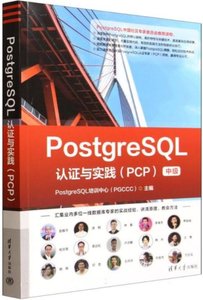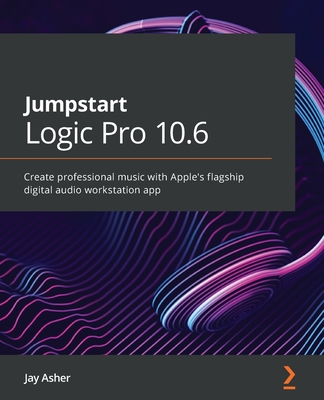Hands-On Music Generation with Magenta
暫譯: 實作音樂生成與 Magenta
Dubreuil, Alexandre
- 出版商: Packt Publishing
- 出版日期: 2020-01-30
- 售價: $1,420
- 貴賓價: 9.5 折 $1,349
- 語言: 英文
- 頁數: 360
- 裝訂: Quality Paper - also called trade paper
- ISBN: 1838824413
- ISBN-13: 9781838824419
-
相關分類:
DeepLearning、Machine Learning、GAN 生成對抗網絡
立即出貨 (庫存=1)
買這商品的人也買了...
-
 Machine Musicianship (Paperback)
Machine Musicianship (Paperback)$1,530$1,453 -
 The Art of Electronics, 3/e (Hardcover)
The Art of Electronics, 3/e (Hardcover)$2,600$2,548 -
 $1,258Learning the Art of Electronics: A Hands-On Lab Course (Paperback)
$1,258Learning the Art of Electronics: A Hands-On Lab Course (Paperback) -
 $504Linux 開源存儲全棧詳解:從 Ceph 到容器存儲
$504Linux 開源存儲全棧詳解:從 Ceph 到容器存儲 -
 The Art of Electronics: The X Chapters (Hardcover)
The Art of Electronics: The X Chapters (Hardcover)$1,680$1,646 -
 Python × Network 一拍即合:自動化、程式化和 DevOps 的一站式解決方案 (Mastering Python Networking, 3/e)
Python × Network 一拍即合:自動化、程式化和 DevOps 的一站式解決方案 (Mastering Python Networking, 3/e)$780$608 -
 $601三維存儲芯片技術
$601三維存儲芯片技術 -
 白話演算法!培養程式設計的邏輯思考 (Grokking Algorithms: An illustrated guide for programmers and other curious people)
白話演算法!培養程式設計的邏輯思考 (Grokking Algorithms: An illustrated guide for programmers and other curious people)$520$468 -
 Raspberry Pi 400 官方套件 (US版)
Raspberry Pi 400 官方套件 (US版)$5,250$5,145 -
 Python 刷題鍛鍊班:老手都刷過的 50 道程式題, 求職面試最給力 (Python Workout: 50 ten-minute exercises)
Python 刷題鍛鍊班:老手都刷過的 50 道程式題, 求職面試最給力 (Python Workout: 50 ten-minute exercises)$480$379 -
 React 學習手冊, 2/e (Learning React: Modern Patterns for Developing React Apps, 2/e)
React 學習手冊, 2/e (Learning React: Modern Patterns for Developing React Apps, 2/e)$580$458 -
 資料科學家的實用統計學 : 運用 R 和 Python 學習 50+個必學統計概念, 2/e (Practical Statistics for Data Scientists: 50+ Essential Concepts Using R and Python, 2/e)
資料科學家的實用統計學 : 運用 R 和 Python 學習 50+個必學統計概念, 2/e (Practical Statistics for Data Scientists: 50+ Essential Concepts Using R and Python, 2/e)$680$537 -
 $453前端開發必知必會:從工程核心到前沿實戰
$453前端開發必知必會:從工程核心到前沿實戰 -
 真槍實彈做專案:PyQt5 極速開發視窗軟體
真槍實彈做專案:PyQt5 極速開發視窗軟體$880$695 -
 PHP、MySQL與 JavaScript 學習手冊, 6/e (Learning PHP, MySQL & JavaScript, 6/e)
PHP、MySQL與 JavaScript 學習手冊, 6/e (Learning PHP, MySQL & JavaScript, 6/e)$980$774 -
 Python 幫幫忙!用程式思維解決現實世界問題 (Real-World Python: A Hacker's Guide to Solving Problems with Code)
Python 幫幫忙!用程式思維解決現實世界問題 (Real-World Python: A Hacker's Guide to Solving Problems with Code)$630$497 -
 Linux 指令大全:工程師活用命令列技巧的常備工具書 (全新升級版) (The Linux Command Line : A Complete Introduction, 2/e)
Linux 指令大全:工程師活用命令列技巧的常備工具書 (全新升級版) (The Linux Command Line : A Complete Introduction, 2/e)$780$663 -
 SQL 學習手冊|資料建立、維護與檢索, 3/e (Learning SQL: Generate, Manipulate, and Retrieve Data, 3/e)
SQL 學習手冊|資料建立、維護與檢索, 3/e (Learning SQL: Generate, Manipulate, and Retrieve Data, 3/e)$620$489 -
 行銷資料科學|大數據 x 市場分析 x 人工智慧, 2/e
行銷資料科學|大數據 x 市場分析 x 人工智慧, 2/e$550$385 -
 資料科學入門完全指南:資料分析的觀念 處理 實作
資料科學入門完全指南:資料分析的觀念 處理 實作$700$553 -
 A Beginner's Guide to SSD Firmware: Designing, Optimizing, and Maintaining SSD Firmware (Paperback)
A Beginner's Guide to SSD Firmware: Designing, Optimizing, and Maintaining SSD Firmware (Paperback)$1,650$1,617 -
 PostgreSQL 認證與實踐 (PCP)
PostgreSQL 認證與實踐 (PCP)$654$621 -
 PostgreSQL 認證與實踐 (PCM)
PostgreSQL 認證與實踐 (PCM)$534$507 -
 $354PostgreSQL 認證與實踐 (PCA)
$354PostgreSQL 認證與實踐 (PCA) -
 資料科學學習手冊|Python 資料處理、探索、視覺化與建模實作 (Learning Data Science: Data Wrangling, Exploration, Visualization, and Modeling with Python)
資料科學學習手冊|Python 資料處理、探索、視覺化與建模實作 (Learning Data Science: Data Wrangling, Exploration, Visualization, and Modeling with Python)$980$774
相關主題
商品描述
The importance of machine learning (ML) in art is growing at a rapid pace due to recent advancements in the field, and Magenta is at the forefront of this innovation. With this book, you’ll follow a hands-on approach to using ML models for music generation, learning how to integrate them into an existing music production workflow. Complete with practical examples and explanations of the theoretical background required to understand the underlying technologies, this book is the perfect starting point to begin exploring music generation.
The book will help you learn how to use the models in Magenta for generating percussion sequences, monophonic and polyphonic melodies in MIDI, and instrument sounds in raw audio. Through practical examples and in-depth explanations, you’ll understand ML models such as RNNs, VAEs, and GANs. Using this knowledge, you’ll create and train your own models for advanced music generation use cases, along with preparing new datasets. Finally, you’ll get to grips with integrating Magenta with other technologies, such as digital audio workstations (DAWs), and using Magenta.js to distribute music generation apps in the browser.
By the end of this book, you'll be well-versed with Magenta and have developed the skills you need to use ML models for music generation in your own style.
- Use RNN models in Magenta to generate MIDI percussion, and monophonic and polyphonic sequences
- Use WaveNet and GAN models to generate instrument notes in the form of raw audio
- Employ Variational Autoencoder models like MusicVAE and GrooVAE to sample, interpolate, and humanize existing sequences
- Prepare and create your dataset on specific styles and instruments
- Train your network on your personal datasets and fix problems when training networks
- Apply MIDI to synchronize Magenta with existing music production tools like DAWs
- Learn how machine learning, deep learning, and reinforcement learning are used in music generation
- Generate new content by manipulating the source data using Magenta utilities, and train machine learning models with it
- Explore various Magenta projects such as Magenta Studio, MusicVAE, and NSynth
商品描述(中文翻譯)
機器學習(ML)在藝術領域的重要性因近期的進展而迅速增長,而 Magenta 正處於這一創新前沿。本書將帶領您以實作的方式使用 ML 模型進行音樂生成,學習如何將其整合到現有的音樂製作工作流程中。本書包含實用的範例和理解底層技術所需的理論背景解釋,是探索音樂生成的完美起點。
本書將幫助您學習如何使用 Magenta 中的模型生成打擊樂序列、單音和多音旋律的 MIDI,以及原始音頻中的樂器聲音。透過實用範例和深入的解釋,您將理解 RNN、VAE 和 GAN 等 ML 模型。利用這些知識,您將創建和訓練自己的模型以應對進階的音樂生成使用案例,並準備新的數據集。最後,您將掌握如何將 Magenta 與其他技術整合,例如數位音頻工作站(DAWs),並使用 Magenta.js 在瀏覽器中分發音樂生成應用程式。
在本書結束時,您將熟悉 Magenta,並具備使用 ML 模型以您自己的風格進行音樂生成所需的技能。
- 使用 Magenta 中的 RNN 模型生成 MIDI 打擊樂和單音及多音序列
- 使用 WaveNet 和 GAN 模型生成原始音頻形式的樂器音符
- 使用變分自編碼器模型,如 MusicVAE 和 GrooVAE,對現有序列進行取樣、插值和人性化處理
- 準備並創建針對特定風格和樂器的數據集
- 在個人數據集上訓練您的網絡,並在訓練網絡時解決問題
- 應用 MIDI 將 Magenta 與現有的音樂製作工具(如 DAWs)同步
- 學習機器學習、深度學習和強化學習在音樂生成中的應用
- 通過使用 Magenta 工具操作源數據生成新內容,並用其訓練機器學習模型
- 探索各種 Magenta 項目,如 Magenta Studio、MusicVAE 和 NSynth











